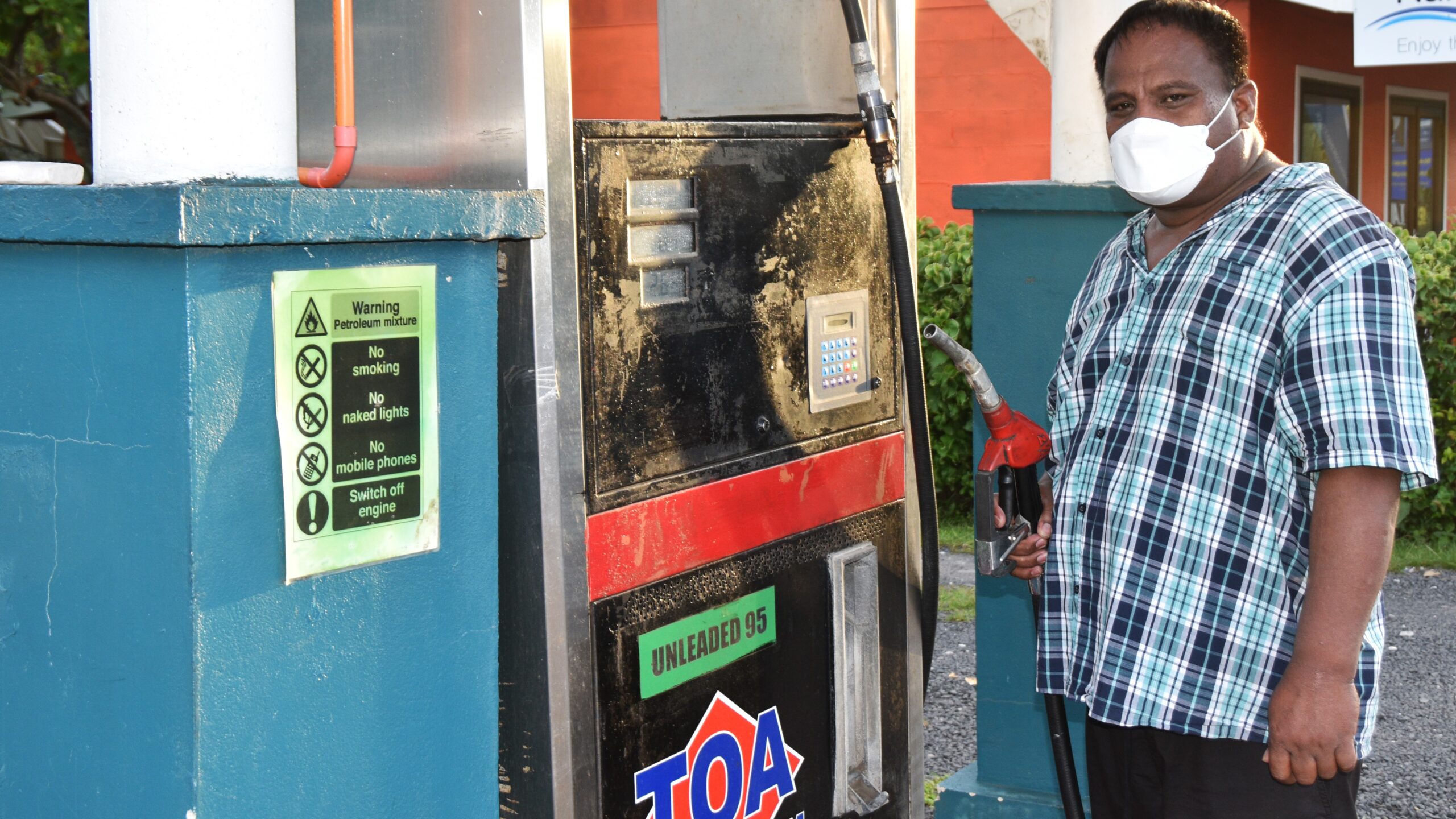Price at the pump is set to bite
Thursday 12 May 2022 | Written by Matthew Littlewood | Published in Economy, National

Convenience Store’s Teibi Ioteba at the shop’s petrol station earlier this year. Petrol prices continue to rise in Cook Islands. Photo: FILE/RASHNEEL KUMAR/22031320
Pressures on the supply of oil and the situation in the Ukraine will likely lead to increased pain at the pump later this month, according to the Price Tribunal.
Price Tribunal president Louis Enoka, responding to a letter to Cook Islands News from Taruia Ringiao, said the market uncertainty as a result of both Covid-19 and the war in Ukraine had doubled the impact of rising fuel prices.
Ringiao asked questions about where the Cook Islands sources its fuel, how the conflict in Ukraine is affecting prices and how the prices change.
“The fuel price goes up, therefore cost of product goes up, also the cost of transporting that fuel goes up - because it is the same product used to transport the product in question,” Enoka said.
“The fact of the matter is that the very nature of the business, in this day and age, is uncertain. The Price Tribunal constantly run the numbers on imports, cost of goods, freighting and handling, expenditure, over-heads and expenses that are consistently increasing every step of the way.”
The letter writer also asked Enoka to explain why prices in petrol and diesel differed, to which Enoka responded: “my limited understanding is that the processes in refineries are extremely technical and costs vary. Historically diesel has been cheaper, but that is no longer the case”.
Enoka said the Cook Islands do not receive fuel from either Ukraine or Russia.
“We more than often pur-chase our fuel from New Zea-land and Fiji of late. World oil has risen thanks to the confl ict in Ukraine,” he said.
“Additional to this, larger (mainly European) economies/countries are purchasing en-ergy and feedstock at unprec-edented levels, to the detriment of smaller economies/countries that paved the road for tougher fuel export conditions for us.”
In March, a new price of $2.61 per litre of petrol was set by the Tribunal as the maximum al-lowable retail price in Raroton-ga. The new price was a decrease in fi ve cents since the last price order set on January 17.
However, Enoka said the next price order, which is due to be finalised in the coming week, would almost certainly be more expensive.
"The inevitable increase in fuel price is a combination of market uncertainty, increased freight costs, availability, sup-ply and demand; and to a lesser but noticeable extent, the war in Ukraine,” he said.
Enoka said fuel movement from the Middle East/ Asian re-fi neries to Europe had increased threefold since the Ukraine/ Russia war – “with a notable demand on diesel going in this direction; unsurprisingly, driv-ing diesel price increases in the Southern hemisphere.
“We currently enjoy the ben-efi ts of better fuel prices than New Zealand. Our last price or-der, for example, saw most prices fall even though the Ukraine war was underway. This, how-ever, will change very shortly as the price of current stock is due to increase,” Enoka said.
“Notwithstanding the Price Tribunal’s good working rela-tionship with our fuel import-ers, we have robust processes and procedures in place to en-sure that we and they, are oper-ating proficiently and profes-sionally for the benefit of all Cook Islanders.”
Enoka told Cook Islands News he expected the Price Tri-bunal to announce its decision on fuel prices before the end of next week.












































